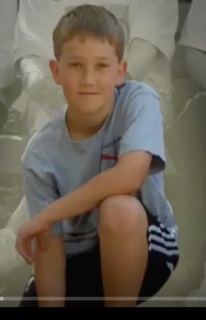 By Diana Whittle
By Diana Whittle
Suicide is a word that hits hard—particularly when it involves cases that increasingly are stealing our community’s young people. It seems to be an unthinkable solution for anyone to consider, especially at an age usually considered to be idyllic.
Many adults remember being a teen as a fun, carefree time in life, when kids have the chance to enjoy friendships, the prom or football games, without the demands of adulthood.
Yet the reality is much different for some students in the East Valley, where since the beginning of this school year, seven young people ages 12 to 18 have chosen to end their lives.
It’s a stunning statistic—nearly one death per week—and a crisis that needs immediate resolution, says Katey McPherson, executive director of the Gurian Institute, an organization dedicated to educational improvements.
McPherson says that, increasingly, many teens feel tremendously stressed— overwhelmed by pressures to earn good grades, by angst about their future college choices or by trying to fit in socially.
Since schools cannot release individual data on specific students, due to the Health Insurance Portability and Accountability Act, commonly referred to as HIPPA, McPherson learned about the teens’ deaths through her contacts with school administrators and local residents, as well as on social media “Go Fund Me” pages that were created for the impacted families. McPherson, who lives in Chandler and is the parent of four teenaged daughters, spent 20 years as an educator and principal in the Valley.
“In my 20 years of working with kids, I have never seen this level of distress in the community,” said McPherson. “We need more holistic care of our children.”
“It’s my mission to (serve as) a pair of boots-on-the-ground to help kids and educators find solutions, along with providing a mental health continuum of care in schools.”
So, during the just completed National Suicide Prevention Week, McPherson mobilized significant educational brainpower to produce a workshop for educators and a town hall discussion for the public.
The event, “i-GEN: Turning Distress into Success,” was held on Thursday, Sept. 14. The town hall portion included a panel discussion with noted social service providers in the Valley, including representatives from Community Bridges, Addiction Haven and the school resource officer from the Chandler Police Department, Kevin Quinn, along with Dr. Kenneth Baca, superintendent of Tempe Union High School District.
Others attendees to RSVP to the i-Gen program included school district superintendents and administrators from Tempe, Chandler, Mesa and others from throughout the East Valley.
The event also featured a renowned educator as the keynote speaker, Dr. Glenn “Max” McGee, who early in his tenure as the superintendent of Palo Alto Unified School District in Northern California, faced a similar situation when several students in the district died by suicide within weeks of each other.
As a result, McGee, in tandem with The Heard Alliance, Stanford University and The University of South Florida, created a comprehensive toolkit for schools in the areas of suicide prevention, cyberbullying, overall mental health and wellness supports for students.
This kit was created in 2013 in response to the need of school communities to address student mental and emotional wellness in order to steer teens from suicide and provide evidence-based information about how to intervene in a crisis or after a suicide loss. The resource can be downloaded from http://www. heardalliance.org/help-toolkit
In 2016, California enacted Assembly Bill 2246 that requires public schools serving grades 7 to 12 to have a “Pupil Suicide Prevention Policy” by the 2017-18 school years.
The California Department of Education’s model youth suicide prevention policy can be found at www.cde.ca.gov/ls/ cg/mh/index.asp.
Said McPherson:
“The purpose of the event was more than pondering the grim reality that seven lives are lost. It was to help the community move forward, to consider the best solutions and methods, and to offer appropriate services to teens.
“We need recognition locally that we are missing the mark in providing for kids’ mental health.”
Baca shared his concerns about the recent rash of suicides and stated, “No community is immune to suicide, but, we have a responsibility to do all we can to try to prevent young people from taking their own life.
“Suicide is often the last step for a student, who may have been bullied or faced mental illness, or felt that they had nowhere to turn. In the Tempe Union High School District, we are working to address this issue with a holistic approach that educates the community about suicide, as well as cares for the student’s social and emotional wellness. We don’t have all the answers, but as a district we are trying to find as many as we can.”
Kyrene school district officials are also aware of the alarming trend in teen suicide. Renee Kory, principal of Aprende Middle School, where an eighth-grade student died by suicide in 2011, offered her thoughts on the issue.
“Kyrene School District is committed to providing opportunities for students to develop resiliency, self-advocate, set goals, and build confidence,” Kory said. “This school year we have also added necessary supports at the middle school level though the hiring of full-time mental health professionals at each school site.”
Mom reflects on tragic end to Aprende son’s life
National Suicide Prevention Week hits close to home for Nora Kinney. In 2011, her son, Preston, who was just beginning eighth grade at Aprende Middle School, died by suicide.

“It caught our family totally off guard. We had no idea he was struggling with depression,” Nora said. Preston was one of five sons, she said, and he left a note for his family. “He mentioned that he was trying to find answers on his own but at 13, you can’t really do that,” Nora said.
Six years have passed since Preston died, but Nora said he “would always be a special part of us and never forgotten. If we can help through our loss, we want to.” One obstacle to overcome, she noted, is the continuing stigmatization of mental health and suicide.
“It’s time for that to stop,” Nora said. “We wouldn’t be concerned if our son had cancer and we were going to get him treatment for that, but there’s something about suicide and depression that nobody wants to talk about. It’s swept under the carpet.”
• National Suicide Prevention Hotline: 800-273-8255 • Teen Lifeline 800-248-8336


